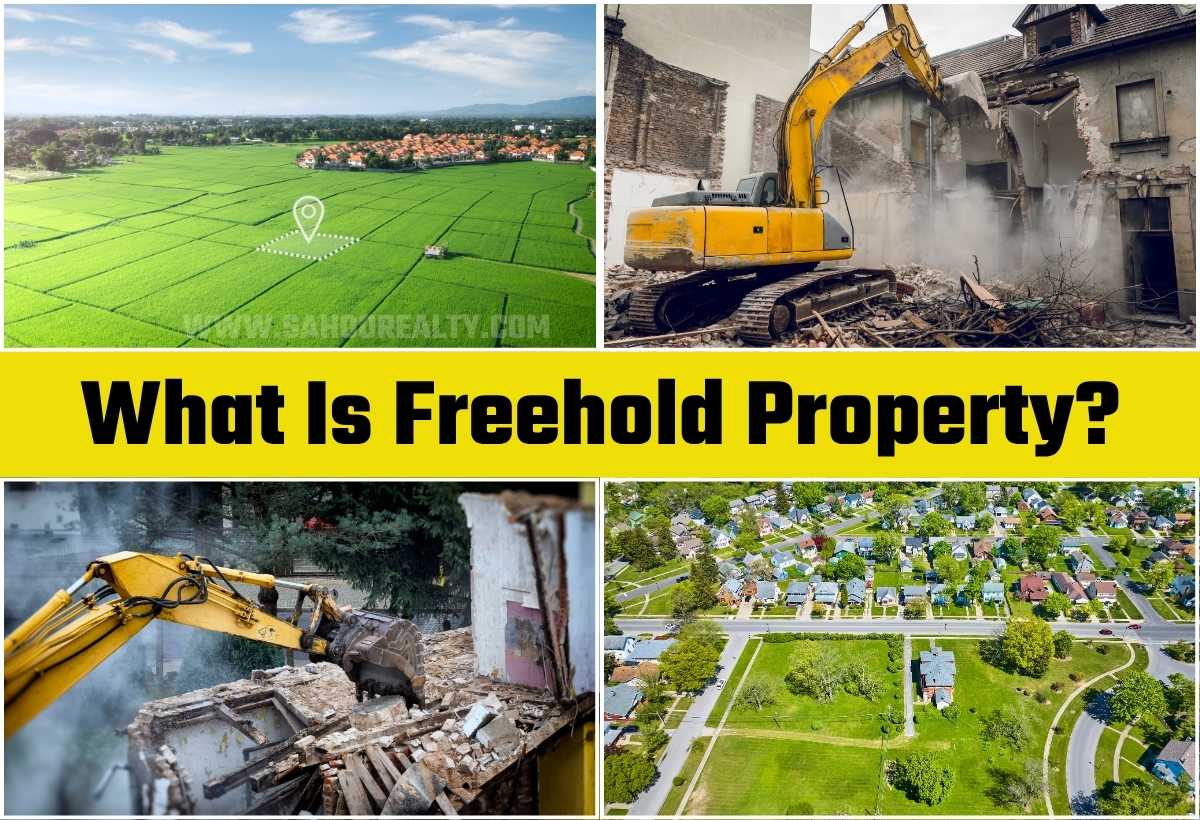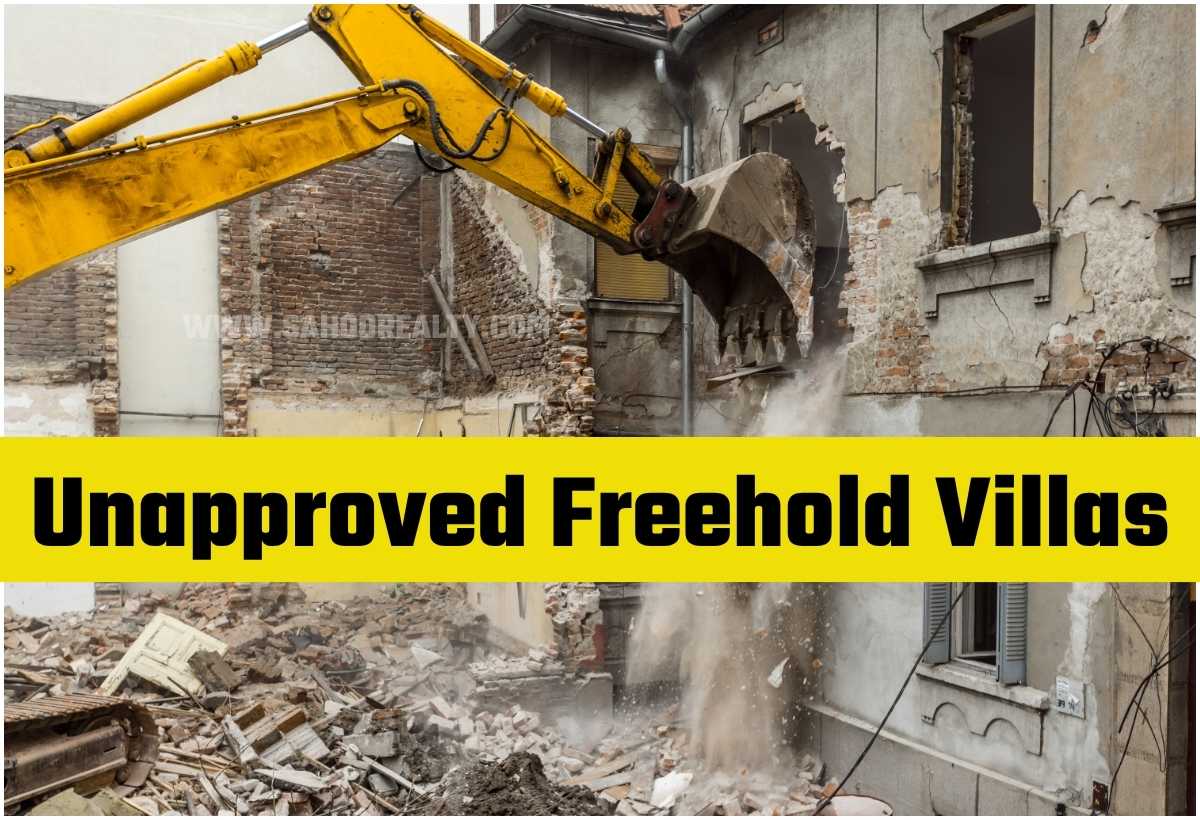Sahoo Realty - Top Real Estate Consultant

22 Jul
186
What is Freehold Property? What is the Scope, Benefits, and Loss?
In the world of real estate, you may have heard the term “Freehold Property” many times. Whether you are buying a plot, flat, or building, it is important to understand what freehold property means and how it is different from other types of properties.
In this article, we will explain in simple language what a freehold property is, along with its scope, benefits, and possible disadvantages.
What is a Freehold Property?
A freehold property is a type of property where the owner has complete legal ownership of both the land and the building built on it. That means the buyer owns the property forever and can use it, sell it, transfer it, or even pass it on to the next generation without taking permission from any authority (as long as they follow local laws).
In a freehold property:
- The land is owned permanently.
- The owner has full control.
- There is no lease or rent to be paid to the government or any authority.
Examples of Freehold Properties
- Residential plots bought from development authorities or private owners.
- Independent houses or villas built on freehold land.
- Commercial buildings on freehold plots.
- Some flats or apartments in societies where the land title has been converted from leasehold to freehold.
In places like Delhi, Noida, or Mumbai, many properties are originally leasehold but can be converted into freehold by applying to the authority and paying a conversion fee.
Benefits of Freehold Property
Now let’s talk about the major advantages of owning a freehold property:
1. Full Ownership
You have 100% ownership of the property and the land. You don’t have to worry about lease terms or renewals.
2. No Need for Approval to Sell or Transfer
You can sell, gift, or transfer the property to anyone without taking permission from the authority.
3. Better Market Value
Freehold properties generally have higher resale value than leasehold ones. Buyers prefer full ownership.
4. Bank Loans Are Easier
Banks and financial institutions prefer freehold properties when giving home loans or mortgages. The approval process is smoother.
5. No Rent or Lease Fees
There is no need to pay yearly lease rent or maintenance to the land-owning authority (unlike leasehold properties).
6. Long-Term Security
Freehold gives you lifetime ownership, which offers peace of mind and security for you and your family.
7. Inheritance is Simple
The property can be passed on to your children or heirs without complications, as you are the sole owner.
Scope of Freehold Properties in India
In India, the demand for freehold property is increasing rapidly, especially in urban and suburban areas. Here's why the future scope is promising:
- Many government leasehold colonies are converting to freehold.
- In areas like Delhi, Noida, Gurgaon, Ghaziabad, and Mumbai, freehold plots and flats are gaining popularity.
- Investors prefer freehold due to its long-term value and freedom of use.
- Builders and developers are launching new projects with freehold ownership.
- In Tier-2 and Tier-3 cities, land is usually already freehold, making it attractive for buyers.
With urban expansion and infrastructure growth (like metro, highways, and airports), freehold properties near such developments are seeing high returns.
Disadvantages or Losses of Freehold Property
While freehold properties have many advantages, there are some things you should be careful about:
1. Higher Cost
Freehold properties are generally more expensive than leasehold ones, especially in prime locations.
2. Illegal Construction Risk
Some owners misuse their freedom and build without proper approval, which can lead to demolition notices or fines.
3. Maintenance and Infrastructure
In some private freehold colonies, there may be no proper roads, sewage, or electricity as there is no government authority maintaining it.
4. Property Disputes
In old freehold areas, land ownership may not be clearly recorded, leading to legal disputes or fraud.
5. Lack of Regulation
Because there's no central authority managing freehold properties, rules on construction, security, or civic issues may be weak.
Tips Before Buying Freehold Property
- Always verify the ownership documents (title deed, registry).
- Check if the land is approved by the local authority.
- Make sure there are no legal disputes or encroachments.
- Ask for a mutation certificate and property tax receipts.
- Get help from a reliable property consultant or lawyer.
Conclusion
A freehold property is a type of property where you have full ownership rights for life. It offers freedom, better resale value, and long-term security. Whether you want to build your home, start a business, or invest for the future, freehold property is a smart and safe option.
However, like any investment, you should always check the documents, verify legal status, and make an informed decision.
With the growing demand and development across Indian cities, freehold properties have a bright future and are a solid asset for individuals, families, and investors alike.
Read More Articles
Is It Safe to Buy Freehold Property in Noida? - Sahoo Realty
Noida has become one of the most popular real estate destinations near Delhi NCR. With good roads, metro services, IT companies, shopping malls, and schools, more and more people are planning to buy property here. For many buyers, the word “freehold property” sounds attractive because it means full ownershi...
5 Documents to Check Before Buying a Freehold Property in Noida and Greater Noida
Buying a property is one of the biggest decisions in life. People invest their lifetime savings into it. In Noida and Greater Noida, many people are looking to buy freehold properties like plots, flats, or villas. These areas are growing very fast because of good infrastructure, metro connectivity, and affordable housi...
Upcoming Government Projects in Greater Noida & Noida Extension
Greater Noida and Noida Extension are set for major government-led infrastructure upgrades over the next few years. These new projects promise better connectivity, faster travel, job creation, green development, and higher real estate value. Let’s explore the key projects planned by authorities for 2025–202...
Unapproved Villas: Noida Extension's Hidden Dangers?
Noida Extension (Greater Noida West) is one of the fastest-growing areas near Delhi NCR. It is known for its wide roads, modern town planning, and affordable housing. Many people are buying villas here, hoping for a better lifestyle. But all that glitters is not gold.
There is a hidden danger in this area — unap...
What is Freehold Property? What is the Scope, Benefits, and Loss?
In the world of real estate, you may have heard the term “Freehold Property” many times. Whether you are buying a plot, flat, or building, it is important to understand what freehold property means and how it is different from other types of properties.
In this article, we will explain in simple language w...
✖






